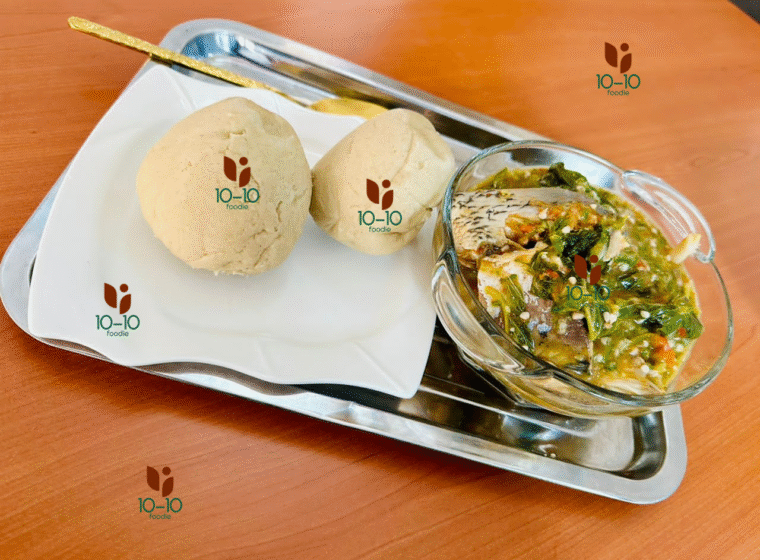Banku Beyond the Myths: The Balanced Energy Food
Banku is one of Ghana’s most loved and debated dishes. Some call it a heavy meal, others say it’s the reason for their belly fat — but nutrition science tells a different story. The truth is that banku, when eaten right, can be one of the most balanced and gut-friendly meals in the Ghanaian die
What Makes Banku Special
Banku is made by mixing fermented corn and cassava dough, cooked slowly into a smooth, slightly tangy meal. This process — fermentation — makes it far more than just a carbohydrate source.
It enriches the food with beneficial bacteria (probiotics) that support gut health, improve digestion, and enhance nutrient absorption.
In short, banku is a living food, one that supports your microbiome and helps keep your gut happy
Nutritional Strength of Banku
-
Carbohydrates for Energy: Corn and cassava supply complex carbs that provide sustained fuel for daily activity.
-
Natural Minerals: Corn contains magnesium and phosphorus, essential for bones and nerves.
-
Fermentation Advantage: Lowers phytic acid (an anti-nutrient), improving iron and zinc availability.
-
Low Gluten & Easy to Digest: Especially suitable for people who react to wheat-based meals.
Where Banku Can Go Wrong
The problem isn’t the banku itself , it’s what we add to it and how much we serve.
Too much palm oil, fried fish, or salted tilapia quickly turns a balanced meal into an oily overload.
The secret lies in portion control, lean protein, and fresh vegetables.
How to Build a Balanced Banku Plate
-
Portion Your Banku:
-
1 to 2 medium balls (about the size of two fists) are enough for an adult.
-
If you’re less active or eating dinner, reduce it slightly.
-
-
Add Protein:
-
Grilled fish, lean goat, snails, mushrooms, or beans.
-
Avoid deep-fried proteins; grill, steam, or bake instead.
-
-
Load Up on Vegetables:
-
Okro stew, tomatoes, carrots, bell peper, cabbage, garden eggs, or spinach.
-
Add colour — the more colours on your plate, the better the nutrient mix.
-
-
Go Easy on the Oil & Salt:
-
Palm oil has great nutrients, but moderation matters.
-
Use one or two tablespoons per stew, not half the bottle.
-
-
Watch the Sides:
-
Replace fried ripe plantain with boiled plantain or avocado.
-
Drink water or light sobolo instead of sugar-sweetened drinks.
-
Fun Fact for the Health-Curious
Fermented foods like banku act as natural probiotics, the same gut-supporting benefit you find in yogurt or kombucha. Regularly eating fermented staples supports digestion, boosts immunity, and reduces bloating.
Banku is not the problem ! Our portions and pairings are.
When combined with fresh vegetables, moderate oil, and lean protein, it becomes a complete, energy-boosting, gut-friendly meal.
At 10-10 Foodie, we celebrate local meals that nourish both body and culture. So go ahead — enjoy your banku. Just let balance lead every bite.
References
-
FAO (2020). Fermented Cereal Foods and Their Contribution to Nutrition in Africa.
-
Amagloh, F. K., & Oduro, I. (2019). “Probiotic and Nutrient Characteristics of Fermented Maize–Cassava Products.” Ghana Journal of Food Science, 14(1), 32–40.
-
WHO (2019). Dietary Guidelines for African Populations.
By Nana Achiaa Agyapong| Food Scientist & Nutrition Coach

